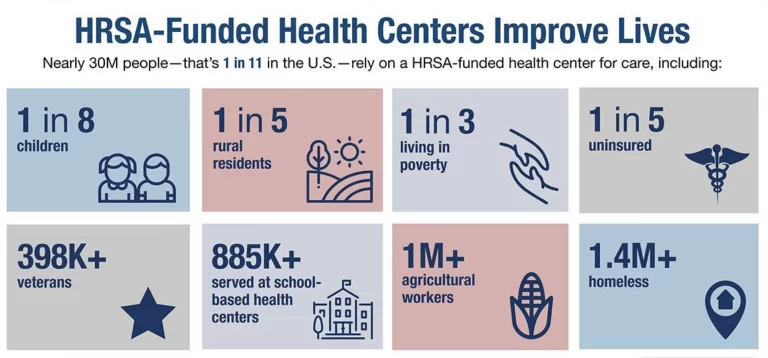
Throughout history, movements toward solutions for great problems often find leaders in the most unlikely places. The HIV/AIDS epidemic in the 1980s and 1990s found an unwitting and unlikely voice in Ryan White. His experience and willingness to be vocal inspired action at the Congressional level and yielded the implementation of the largest federally funded HIV/AIDS program in the nation. This program has impacted the lives of millions of Americans diagnosed with HIV.
Who was Ryan White?
Ryan White was an American teenager from Indiana who was diagnosed with AIDS in December of 1984. White contracted the illness from a contaminated blood treatment he was receiving for another condition. He became a national poster child for HIV/AIDS in the United States when his community protested, and succeeded, in keeping him from returning to his school based on the unfounded fear that his illness was easily transmissible to other students.
White’s diagnosis flew in the face of the prevailing public stigma that AIDS was a disease that impacted the gay community. As a spokesman on behalf of those suffering from the disease, White did tremendous good in communicating the reality of the AIDS epidemic and helping Americans to better understand it in a time when relatively little was know.
He died in April of 1990 living more than five years longer than doctors had previously given him. His life and death helped to change the public perception of the disease in a time where the general public was relatively ignorant regarding almost anything to do with it. Numerous charities and non-profit organizations were established in his memory with the goal of funding research and public education efforts. Before White’s well-publicized life, AIDS was largely seen as a disease that affected primarily homosexual communities in large urban areas such as Los Angeles and New York.
Related Post: Integrating Mental Health Care Services Into HIV Comprehensive Care
What is the Ryan White HIV/AIDS Program?
The Ryan White Comprehensive AIDS Resources Emergency Act was enacted in 1990 after White’s death. It is the largest federally funded program to assist individuals in the United States who are living with HIV/AIDS. The Act makes federal funds available to low-income and underinsured individuals by way of grants made to states. One of the primary goals of the Ryan White CARE Act is to make the chemotherapeutic antiviral drug Zidovudine (AZT) more accessible to those who are unable to afford the therapy.
The Ryan White HIV/AIDS Program has been reauthorized frequently over the years, most recently in 2009. More than half of the individuals who are diagnosed with HIV in the United States received some type of service from this program. That is hundreds of thousands of Americans!
The program’s website outlines the five parts that make up the Ryan White HIV/AIDS Program:
- Part A provides federal funding and support to Eligible Metropolitan Areas and Transitional Grant Areas. These are areas are the most severely affected by the HIV/AIDS epidemic.
- Part B disburses funds to states and territories with the goal of improving the quality, availability, and organization of HIV health care and support. All 50 states, Washington D.C., Puerto Rico, as well as other various territories receive these funds. This part of the program also provides grants for the AIDS Drug Assistance Program.
- Part C disburses funds for local, on-the-ground community organizations that provide primary care health support services for those with HIV.
- Part D administers funds to organizations that work with women, children, infants, and youth with HIV to provide outpatient, ambulatory, and family-centered medical care.
- Part F funds help to support clinical training and dental services. These funds also support innovative work that is geared toward improving health outcomes and reducing HIV transmission.
What does RSR stand for HRSA?
The Health Resources and Services Administration (HRSA) oversees the Ryan White HIV/AIDS Program. The mandatory reports that must be submitted from recipients are referred to as Ryan White HIV/AIDS Program Service Reports, or, RSR.

What is the Ryan White HIV/AIDS Program Services Report (RSR)
As with most federally funded grant programs in the health services field, recipient organizations are required to provide a detailed analysis of client-level data to account for the funds that are used. This reporting is submitted on an annual basis to the HIV/AIDS Bureau.
According to the Ryan White HIV/AIDS Program Service Reports webpage, the client-level data that is submitted is used to:
- Monitor health outcomes of clients living with HIV receiving care and treatment services through program recipients and sub-recipients.
- Address the impact of HIV in communities disproportionally affected, by assessing organizational capacity and service utilization.
- Monitor the use of the Ryan White HIV/AIDS Program to appropriately address HIV in the United States of America.
- Track progress toward achieving the goals identified in the National HIV/AIDS Strategy: Updated to 2020.
The RSR is composed of three types of reporting:
- Recipient Report – Every recipient of Ryan White Program funds submits a separate report for each program grant that is disbursed by the HRSA. These reports are submitted through the HRSA Electronic Handbook using a web-based data entry system.
- Provider Report – Any provider that contracts with the Ryan White Program is required to basic information about the provider itself and the services that it provides.
- Client Report – This client-level data is uploaded in a standard format and contains demographic information as well as data about clinical information and care received.
These reports are critical to the success of recipients and sub-recipients in several ways. First, they create a level of accountability for the organization by implementing a set of standards and metrics. Second, programs are able to demonstrate their effectiveness and potentially compete for more funds in the future. And third, the metrics that are gathered at the national level help to make the case for greater funding overall when the program is up for reauthorization before Congress.
Who Funds the Ryan White Program?
The Ryan White CARE Act is funded by the federal government and, like many other similar programs, funds are disbursed to states as a way of ultimate distribution to individuals who are in need and meet the specific qualifications that are tied to the funds. In addition to funds provided for nearly 500,000 individuals, the program provides funding to primary care providers and health care provider training programs.
Case Management Solutions for Ryan White Program Reporting
As reporting plays such an integral part in obtaining federal funds for non-profit organizations and recipients, having a robust case management system to gather, organize, and produce reporting is an absolute necessity. Case management software is utilized by a variety of health service organizations and has an excellent track record of helping to streamline processes and working to force a more efficient approach to the valuable work these organizations do.
So what qualities should an organization reporting on Ryan White Programs look for in case management software? Here are some of the big picture benefits that come along with these tools:
- Customization and flexibility: No two health service organizations are exactly alike so it stands to reason that a standard, out-of-the-box product that isn’t flexible will miss some of the more nuanced needs your team might have. A good health services case management software can be customized to your individual needs. Reporting customizations are of particular note given the wide range of data that needs to sort and presented.
- Accuracy: Stringent federal reporting guidelines necessitate thoroughness and accuracy. The reports submitted directly impact the profession of the Ryan White HIV/AIDS program, the amount of funding received from Congress, and how those funds are ultimately disbursed on the ground. Accuracy in these reports helps to build an honest picture of needs and successes. Through automated processes and customized report functions, Ryan White Program recipients can have a high level of confidence in the accuracy of the reports they submit to the United States HIV/AIDS Bureau.
- Accessibility: One demand that has emerged in the modern workplace is the need for team members to have constant and reliable access to information at any moment. Case management software can provide the flexibility for health service organizations to work on the go and collaborate over distances. the ability to access reporting anywhere and anytime is a distinct advantage in the modern workplace.
These three benefits alone make Ryan White Program reporting an ideal situation for case management software. There are a variety of options out there for case management tools but there is one product that stands out from the rest.
PlanStreet’s Case Management Software and Reporting
PlanStreet’s goal has always been to make your health services team’s processes more efficient. Through the reduction of manual paper processes, collaborative tools, customized forms, enhanced billing, and advanced scheduling and calendar functions, PlanStreet’s case management software is the right tool to take your organization to the next level.
Case Management Tools Help Important Work Gets Done
It would be difficult to overstate the value of the work that is accomplished through the Ryan White HIV/AIDS program. The funds that are distributed down to the local level have had an untold impact on the lives of families impacted by HIV and AIDS. It is remarkable that the advocacy of a single young man brought so much attention to this cause and launched the United States Congress to enact a program that has been in effect for over 30 years!
A strong case management software can help your health service organization tackle the intricacies of HIV case management and empower your team to do the best work they are capable of doing.